Introduction: A Treaty Under Pressure

The Indus Waters Treaty (IWT), signed in 1960, has long stood as a beacon of successful water diplomacy between India and Pakistan. Facilitated by the World Bank, it survived multiple wars and diplomatic breakdowns. Yet, in April 2025, India suspended the IWT following a deadly terror attack in Pahalgam, citing national security concerns. The move not only marked a significant geopolitical shift but also raised urgent legal, humanitarian, and environmental questions about the treaty’s resilience in the face of evolving challenges.
Historical Context and Legal Framework
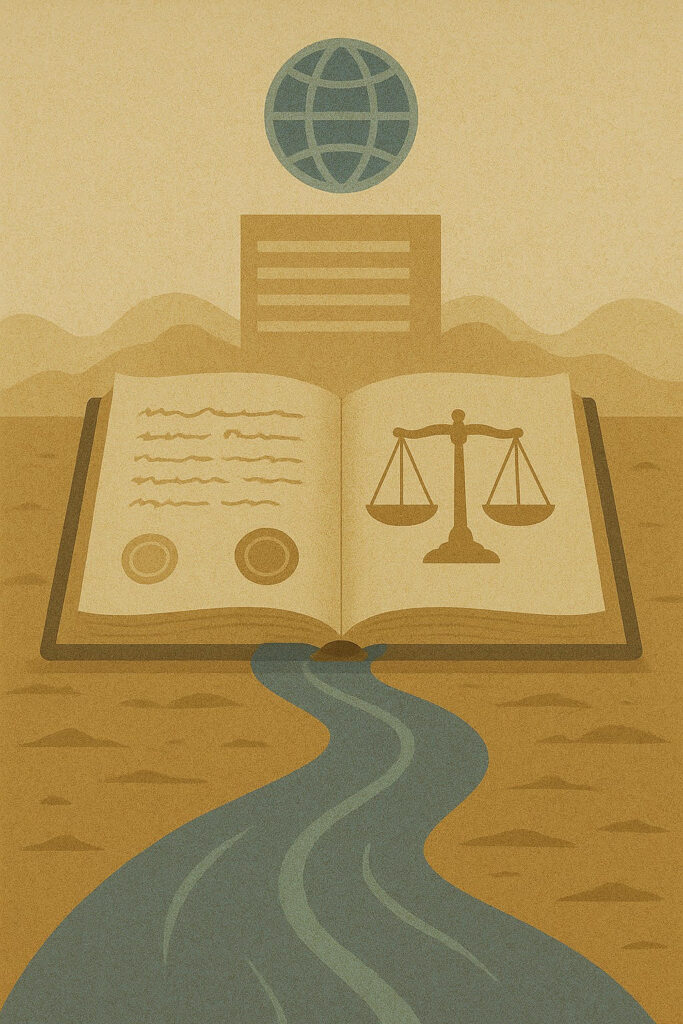
The Indus Waters Treaty allocated the three eastern rivers—Ravi, Beas, and Sutlej—to India and the three western rivers—Indus, Jhelum, and Chenab—to Pakistan. It established a multi-tier dispute resolution mechanism:
- The Permanent Indus Commission (PIC) for regular technical discussions.
- Neutral Expert arbitration for technical disputes.
- The Court of Arbitration for legal issues.
Importantly, the treaty does not contain a termination or suspension clause, making India’s recent action legally contentious. Under Article 56 of the Vienna Convention on the Law of Treaties, a treaty without a termination clause cannot be unilaterally ended unless:
- All parties consent.
- A fundamental change of circumstances makes the treaty unenforceable—an argument India could attempt, albeit controversially.
New Developments in 2025
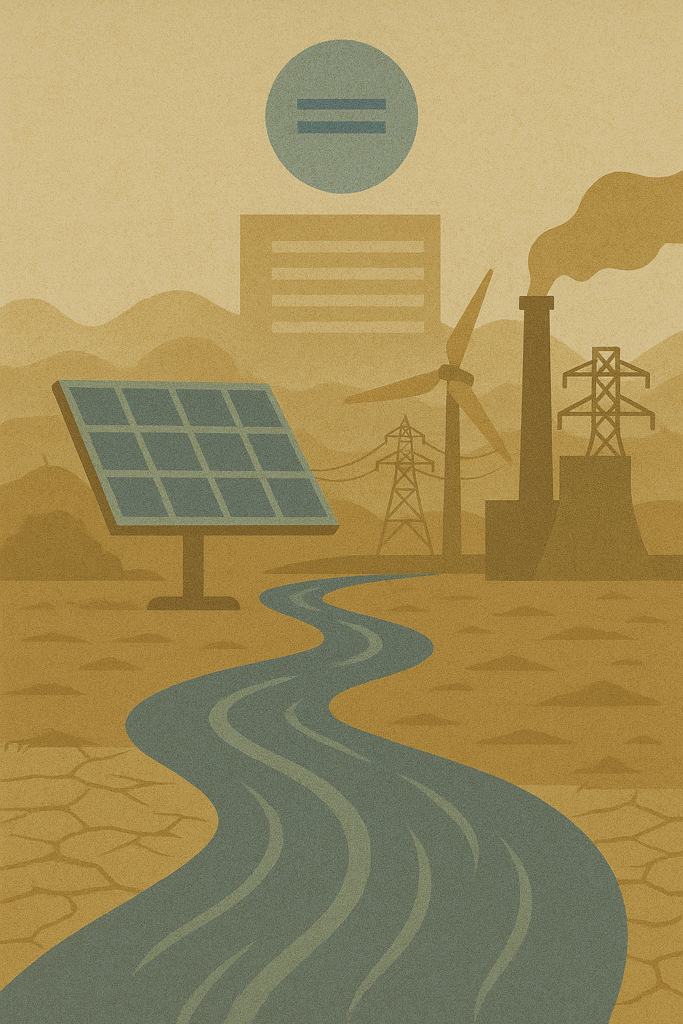
Hydropower Surge on Western Rivers
India has accelerated hydropower infrastructure along the Chenab River, including the long-delayed Pakal Dul, Kiru, Kwar, and Ratle projects. These projects, though within permissible limits under the Indus Waters Treaty, have drawn criticism from Pakistan, which alleges manipulation of flow patterns.
Reduced Flow Reports from Pakistan
Pakistan’s Indus River System Authority (IRSA) reported a 40% drop in Chenab flow compared to seasonal averages. While India attributes this to climatic variations, Pakistan cites the treaty’s suspension as the root cause.
World Bank’s Limited Role
The World Bank, once a key mediator, has refrained from intervention in the current crisis, declaring its role “strictly facilitative” and urging both nations to resolve the matter bilaterally.
Legal Implications and Emerging Challenges
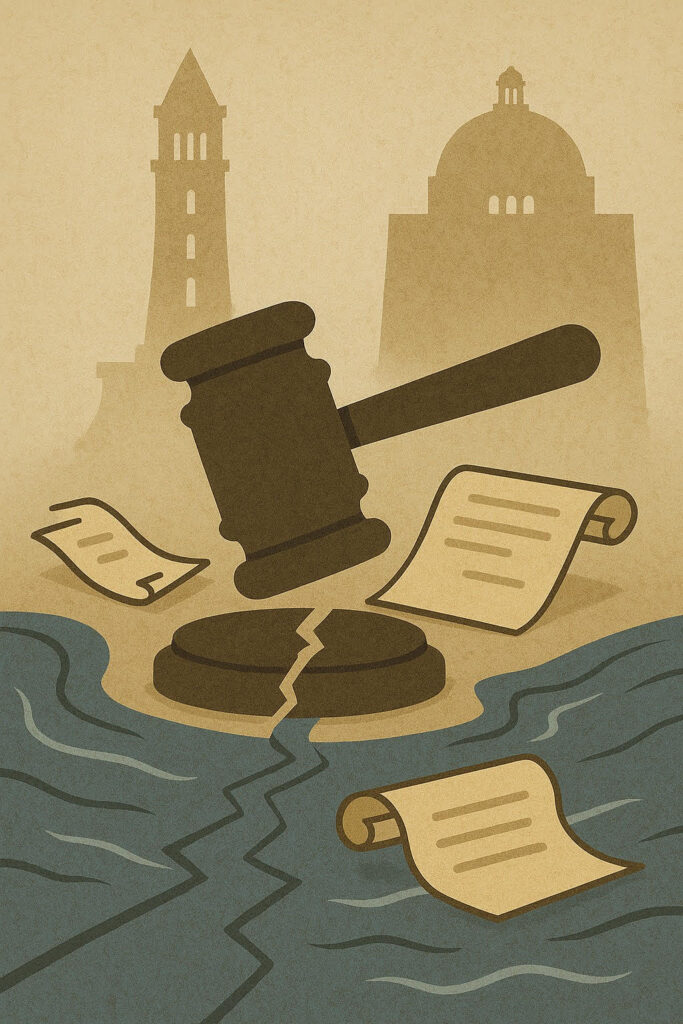
Treaty Violation or Political Necessity?
India’s suspension could be challenged under the International Court of Justice (ICJ) or the Permanent Court of Arbitration, depending on jurisdictional acceptance. Legal scholars point to:
- Gabčíkovo–Nagymaros Project (Hungary/Slovakia, ICJ 1997), where unilateral suspension of a treaty was deemed unlawful.
- India’s own position in the Kishenganga Arbitration (2013), where the tribunal clarified limits on Indian usage of western rivers.
Regional Treaty Precedents
Suspending a bilateral treaty without international consensus may destabilize other global water-sharing agreements, including those on the Nile, Jordan, and Mekong Rivers. The case risks becoming a dangerous precedent in international environmental law.
Humanitarian and Environmental Fallout

Agricultural Devastation
Pakistan’s Punjab and Sindh provinces, reliant on Indus water for wheat, sugarcane, and cotton, are already facing critical shortages. Experts warn of food insecurity and economic disruption.
Urban Water Stress
Cities like Lahore and Multan report rising dependence on overdrawn groundwater, exacerbated by insufficient river supply. If prolonged, this could trigger a public health crisis.
Climate Vulnerability and Disaster Readiness
The treaty mandated real-time data sharing on river flows and dam releases. Its suspension hinders flood forecasting systems—particularly catastrophic for downstream regions prone to glacial lake outburst floods (GLOFs).
Comparative Insights: Other Transboundary Water Disputes
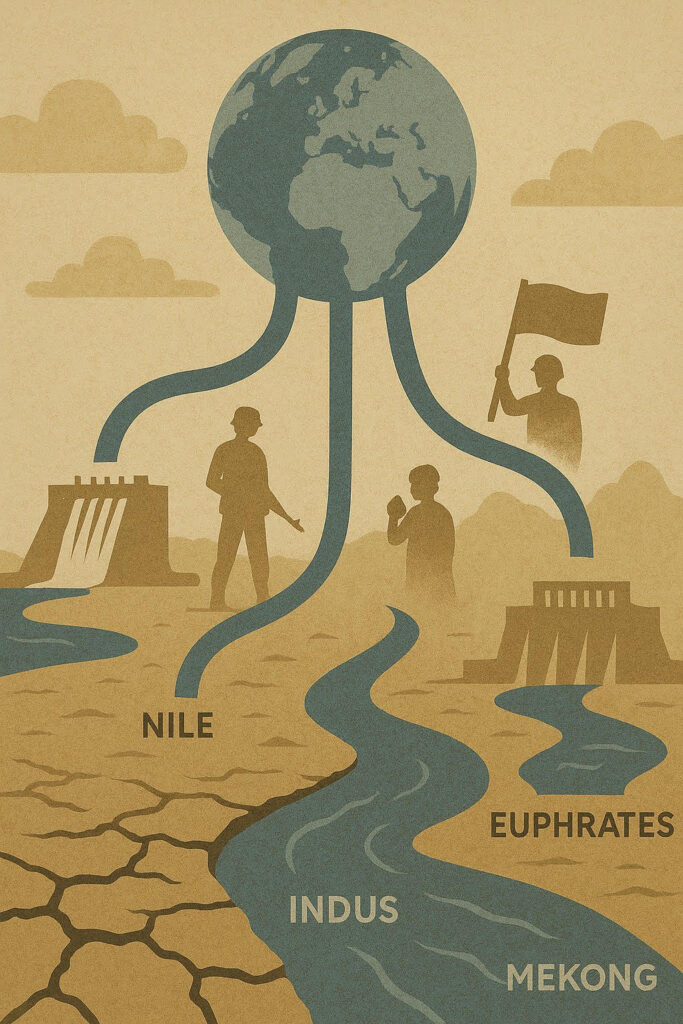
To contextualize the Indus Waters Treaty crisis, parallels can be drawn with:
- Ethiopia-Egypt-Sudan Nile River dispute, involving GERD.
- Syria-Turkey Euphrates water negotiations, reflecting upstream-downstream power imbalances.
- Jordan-Israel water rights, where geopolitical context reshapes hydropolitics.
Such disputes highlight the necessity of sustained dialogue, third-party arbitration, and legal clarity in treaty texts.
The Role of International Law and Institutions
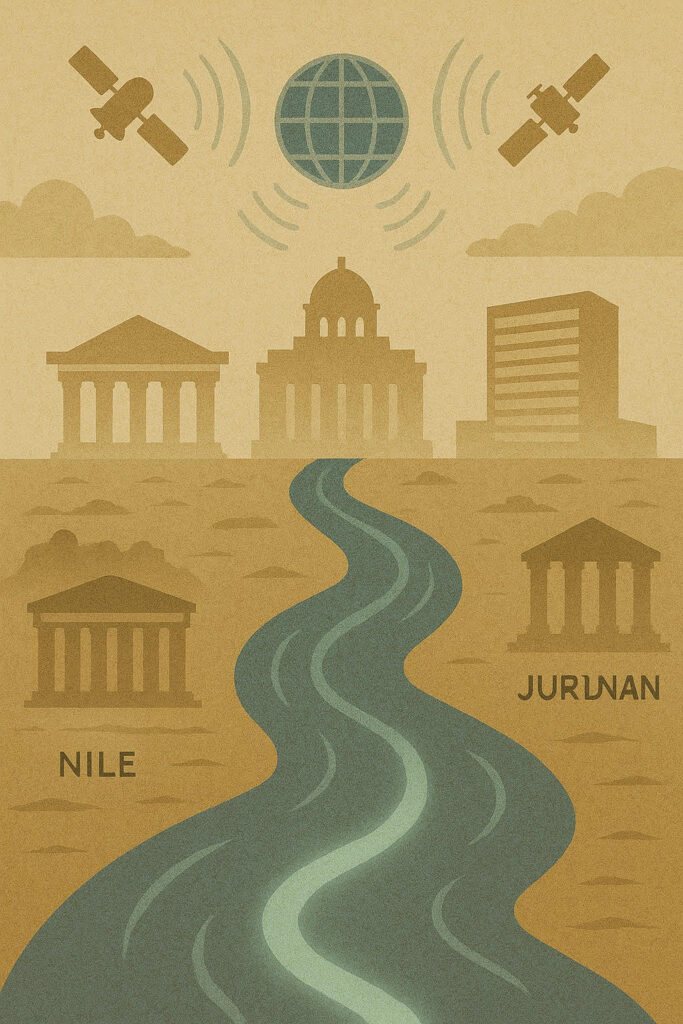
Legal analysts argue that India may be testing the limits of customary international law, including the principles of:
- Equitable and reasonable utilization (UN Watercourses Convention, 1997).
- No significant harm to downstream states.
Despite not being a party to the 1997 Convention, India’s actions may still be evaluated under these principles, especially in the event of adjudication.
Conclusion: Charting a Cooperative Future

The Indus Waters Treaty’s suspension in 2025 is not merely a bilateral skirmish over water—it is a test case for the future of transboundary environmental cooperation. The treaty’s durability for over six decades underscores its foundational strength. But its endurance now depends on a strategic recalibration:
- Restoring trust through dialogue.
- Incorporating climate resilience into treaty protocols.
- Expanding legal interpretations to accommodate evolving ground realities.
India and Pakistan stand at a watershed moment. A return to cooperative principles, supported by neutral arbitration and international mediation, is vital not just for legal compliance, but for the shared survival of millions who depend on the Indus River system.
References:
- ICJ – Gabčíkovo–Nagymaros Project Case (Hungary/Slovakia), 1997
- PCA – Indus Waters Kishenganga Arbitration (Pakistan v. India), 2013
- UN Convention on the Law of the Non-Navigational Uses of International Watercourses, 1997
Also Read: The Shimla Agreement of 1972
For a deeper understanding of the diplomatic framework that laid the foundation for post-war negotiations between India and Pakistan, also read our analysis of the Shimla Agreement of 1972—a critical accord that continues to influence bilateral relations, including water-sharing dynamics under the Indus Waters Treaty.
Connect With Us
If you have questions about the Indus Waters Treaty or need legal guidance on international water agreements, we’re here to help. Reach out through our contact form or visit our Contact Us page to get in touch with our legal experts.

